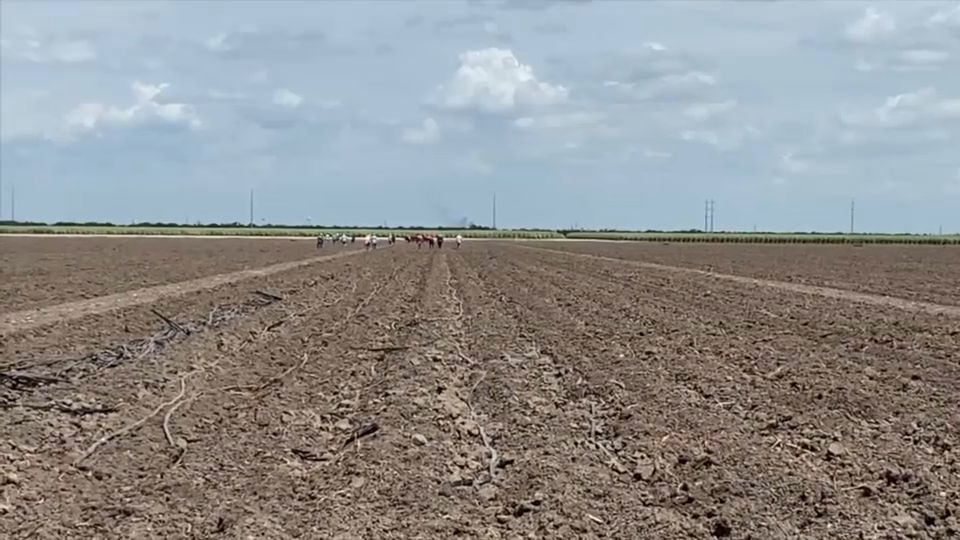A state hydrogeologist told a legislative commission this week that Maine is likely to see more rainfall as climate change progresses, along with “sporadic droughts.”
Ryan Gordon of the Maine Geological Survey kicked off the first of four meetings of the Commission to Study the Role of Water as a Resource in the State of Maine on Monday with a presentation on water resources.
The 16-member commission will study legal principles that apply to water ownership, the quality of available water resources, the sustainability of aquifers and how other states handle natural resource extraction taxes. A report is due in November and will be considered by the next Legislature.
On average, Maine gets about 45 inches of rain per year, half of which runs off as surface water, 35% of which evaporates and 15% of which becomes groundwater, Gordon said.
Just a few minutes into the discussion, Cape Elizabeth farmer Penny Jordan, a commission member, asked about the state’s current drought conditions.
“We may have a feeling that our water resources are stable now but as we experience more drought, from a snow and a rain perspective, that’s something I’d like you to address,” she said. “How are we going to experience water shortages?”
Gordon said he knows the drought is top of mind for many Mainers amid a series of “moderately severe, short-term droughts” over the last several years. Currently, the southern half of Maine is abnormally dry with coastal areas near Portland classified as being in severe drought, according to the U.S. Drought Monitor.
“I think climate change in the future will most likely lead to slightly more precipitation for Maine on average, but we’re predicting more variability,” Gordon said. “The incidence of these short-term droughts, they may become more severe and they might happen more frequently, but that’s going to be coupled with higher rainfall events as well, which have their own challenges.”
The commission includes lawmakers, a resident of western Maine, a resident of northern Maine, someone who represents the interests of businesses that use water in manufacturing, members of two of Maine’s Indian nations, municipal water interests, an environmentalist and someone who represents the interests of those who package water for commercial sale.
One commission member is Mark Dubois, a hydrogeologist and natural resource manager at Poland Spring. The company recently announced that it was pulling back on plans to double the amount of water it extracts from one of its wells in Hollis following town opposition and concerns about the drought, according to The Maine Monitor.
Another commission member is Nickie Sekera, a Freyburg resident and co-founder of Community Water Justice, a group that opposes water privatization in Maine.
Committee chairman Sen. Ben Chipman (D-Portland) said although he didn’t make the appointments to the commission, it’s common for study groups to have people that “represent all the different areas of policy.”
The commission was created following the introduction of a bill that sought to create a 5 cent per gallon excise tax on the extraction of groundwater or surface water for commercial bottling for sale.
Chipman said the commission will not focus on the extraction tax, although it is “not off the table.”
“We are looking at issues around water, water quality and making sure the natural resource is available for the future,” he said.
Committee co-chairwoman Rep. Lori Gramlich (D-Old Orchard Beach) sponsored the original legislation proposing the extraction tax. After bringing the bill forward twice, she decided that it was time to pursue a broader view of the issue.
“I quite frankly think water is our most precious resource,” she said. “We quite literally can’t live without it. What is our responsibility in terms of the bigger picture?”
Gramlich said she welcomes the “diverse perspectives” on the commission.
“We all have a stake in this,” she said. “We are all in this together. We all have a vested interest in trying to protect our access.”
During his presentation, Gordon said that in Maine, humans use 32 billion gallons of groundwater each year, which is less than 1% of the total that is replaced by precipitation and snowmelt each year.
Private wells use 12 billion gallons, public water supplies use 10 billion gallons, aquaculture uses four billion gallons, industrial and mining uses three billion gallons, crops and livestock use two billion gallons and bottled water uses 1 billion gallons, Gordon said.
He named as future challenges increasing temperatures due to climate change, increasing precipitation, more climate variability and sea-level rise. Gordon said sprawl, pesticides and de-icing chemicals used on roadways also pose threats to the state’s groundwater system.
“We’re not really talking very much about pollution, but in my opinion, it’s one of our bigger threats to groundwater resources,” Gordon said. “Not quantity issues or use, but pollution of our existing water resources.”



